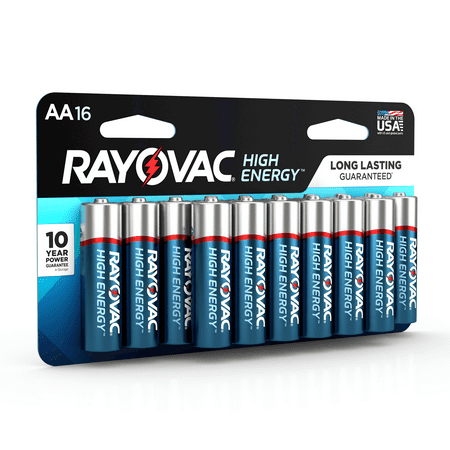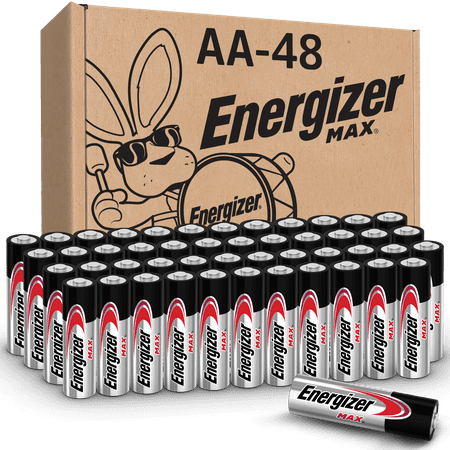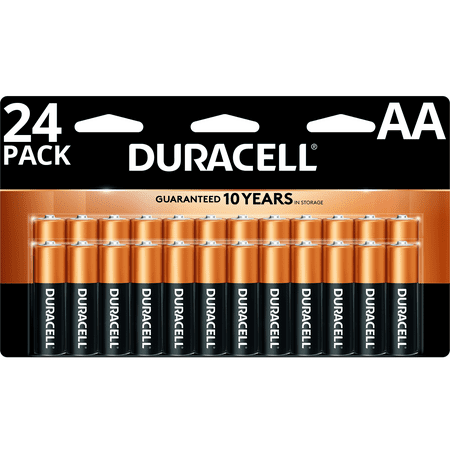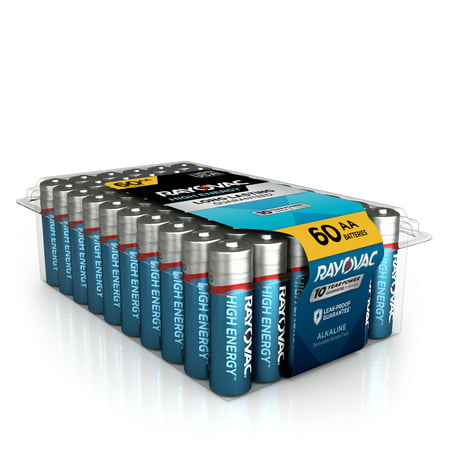Rayovac High Energy Alkaline, AA Batteries, 16 Count
These AA Alkaline Batteries are best for excessive use gadgets which include toys, flashlights, remotes and extra. Plus, they are designed to save you destructive battery leaks and examined twice previous to cargo to ensure reliability. These Double A batteries contain electricity jewelry for consistent overall performance and a max potential can for properly containing and handing over most power. Rayovac High Energy AA Alkaline Batteries are durable, assured, simple and easy or your money returned*. *Money Back Performance Guarantee: Visit www.RAYOVAC.com/MBG for details







Rayovac High Energy Alkaline, AA Batteries, sixteen CountAA Batteries, 16 Pack of High Energy Alkaline BatteriesIdeal for High Use AA Battery Devices – Toys, Flashlights, Remotes & MoreDesigned to Prevent Damaging Battery Leaks & Tested Twice Prior to ShipmentRayovac AA Batteries Hold Power Up to 10 Years in StorageDesigned to prevent pesky leaks and tested two times for reliability before they’re shipped your way. Ideal for toys, flashlights, smart home gadgets and greater. Plus, they’re type in your wallet. Rayovac batteries are constructed to closing and backed through over a hundred and ten years of revel in. That’s performance you may consider.





Reviews
There are no reviews yet.